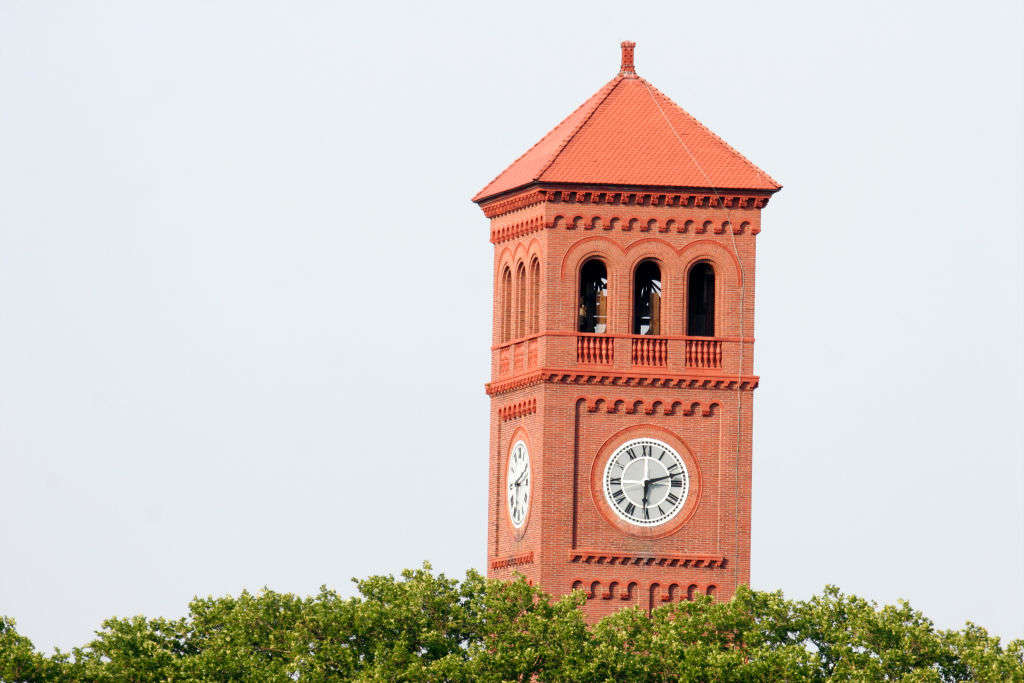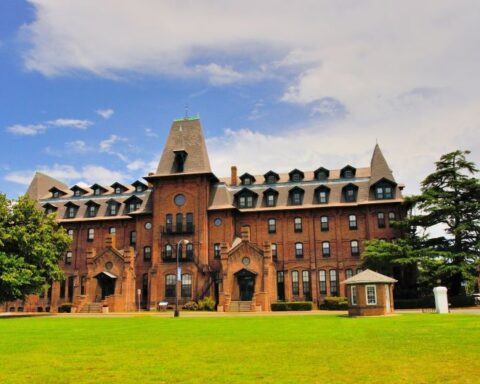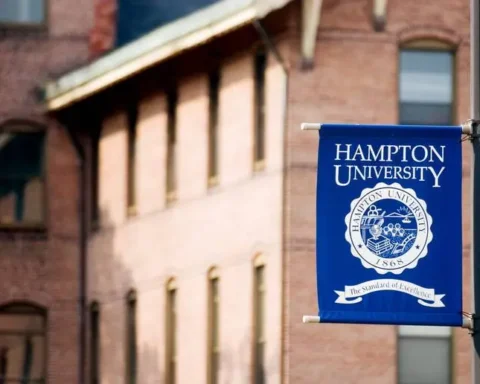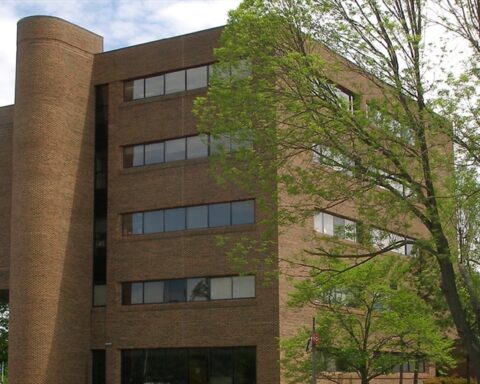The school, which is located in Hampton, Va., has required that students be fully vaccinated for COVID-19, mandated masks in the classroom and taken efforts to curb the spread of the virus at large gatherings.
But despite these measures, the college is something of an island, smack in the middle of a raging COVID ocean. In recent weeks, the city of Hampton has seen a dramatic spike in cases of COVID-19, thanks to the spread of the Delta variant. In August alone, health officials reported 1,533 new cases there, in a city whose population is roughly 135,000.
One Hampton University freshman told Yahoo News that she was horrified when she left the campus bubble to venture out locally.
“Going to the local Waffle House in Hampton, there was this woman who looked visibly sick — red eyes, pale skin, with no mask — serving us food. But in Hampton University’s cafe, they won’t even serve you if you don’t have your mask on.” The freshman also recalled that a cafe staff member had once pulled her aside and told her to “Please, please take care of yourself, because cases are rising in the city.”
While 98 percent of Hampton students have been fully inoculated against COVID-19, the percentage of the population is only 43 percent for the city where it resides.
Students moved back into the college on Aug. 20, setting foot on a campus that had effectively been shuttered for 17 months, thanks to the pandemic. Before dorm check-in, they were ushered to a designated COVID-19 testing site before being allowed to unpack their cars. Temperature checks were also required for entry into many campus buildings.
“As far as housing, some of us got to pick our own rooms, and we have singles, so we’re not as on top of each other,” Ronicia Barnes, a freshman biology major, told Yahoo News. While she said that she wished the classes could be less crowded, she noted, “Overall, they did better than other schools.”
For William Harvey, the school’s president for the last 43 years, this fall marks his last opportunity to welcome students to the HBCU. Now that he’s 80, he plans to retire in the spring, and he’s relieved that Hampton has been able to return to in-person instruction before his departure.
“I’m so happy that they’re back. I’m glad to see them, and I absolutely have missed them,” Harvey, one of the longest-serving U.S. college presidents, told Yahoo News in August. “We want people to be safe as we fight this pandemic … and it’s not over.”
Back in March, the college mandated that all students, faculty, and staff be vaccinated against COVID-19 to attend in-person classes.
“The university requires vaccinations, like meningitis and varicella, etc.,” said Barbara Inman, Hampton University’s vice president for administrative services, in a March letter to new students, “So requiring the COVID-19 vaccination is in concert with prior procedures to keep students, faculty, staff, as well as the community safe.”
“There are going to be some people who push back, as they have, but that’s OK. We have a process for them to push back,” Harvey said, referring to his school’s appeal process for medical and religious exemptions for opting out of the COVID vaccine. “If legitimate, they can get an exemption.” He added, however, that the exemption was not automatic or guaranteed.
Before the pandemic, he could be regularly seen walking on campus grounds, greeting students with a “Hampton Hug,” a congenial act of kindness on campus.
“I am a student-oriented president. I’m out on the lawn. At some point we’ll be able to operate without the masks, and you know, give the old ‘Hampton hug.’ That’s what Hampton is famous for and that’s what we’re going to get back to and that’s the way we do things here.”
But Harvey was also quick to institute a safety-first approach to the pandemic, opting to finish out the 2020 school year virtually, after the World Health Organization’s official declaration of the global pandemic.
Now that the campus of about 3,000 people has returned to the institution, faculty and staff have to undergo once-a-month testing for the virus, as well as further testing as required. Everyone on campus is advised to contact the Health Center within 24 hours of a positive test result, and the school has a designated quarantine/isolation residence hall for those who have been exposed to anyone who has tested positive.
“You can tell that they care about us, because even the RAs [resident assistants] are telling us not to go into each other’s dorm rooms, because they want to keep not only themselves safe, but others safe as well,” a freshman said. “Some professors have a hard time teaching with the masks on, so they’ll ask us if they can pull down their masks for a bit. We’re like, ‘Yeah, but stay 6 feet away.’”
The Harvey administration has also softened the financial blow of COVID, wiping out debt owed to the university for the 2020 academic year.
“We try to look out for everybody,” Harvey said, “and we’ll continue to do that.”
The funds to carry out that plan came from the American Rescue Plan Act, which will offer Hampton $27 million in new grants, in addition to the $10 million it had already received through federal pandemic relief.
“It is our hope that these funds will assist our students in continuing their Hampton experience and enjoying a seamless transition back to campus,” Harvey said in a statement on the new funding.
But a return to campus also carries risks, especially at a school surrounded by a community where vaccination rates are low and the virus continues to circulate widely.
“Students have been locked in their house with their families for more than a year,” the freshman said. “Of course, when we get to campus, we’re going to want to go socialize and sometimes go off campus. And even though the administration encourages us not to, they can’t control certain individuals who are seeking out a certain college experience.”
As for those famous Hampton hugs, they may have to wait, but some sacrifices are worth it.
“We’re going to do everything we can to keep everybody as healthy and as safe as possible,” Harvey said.







